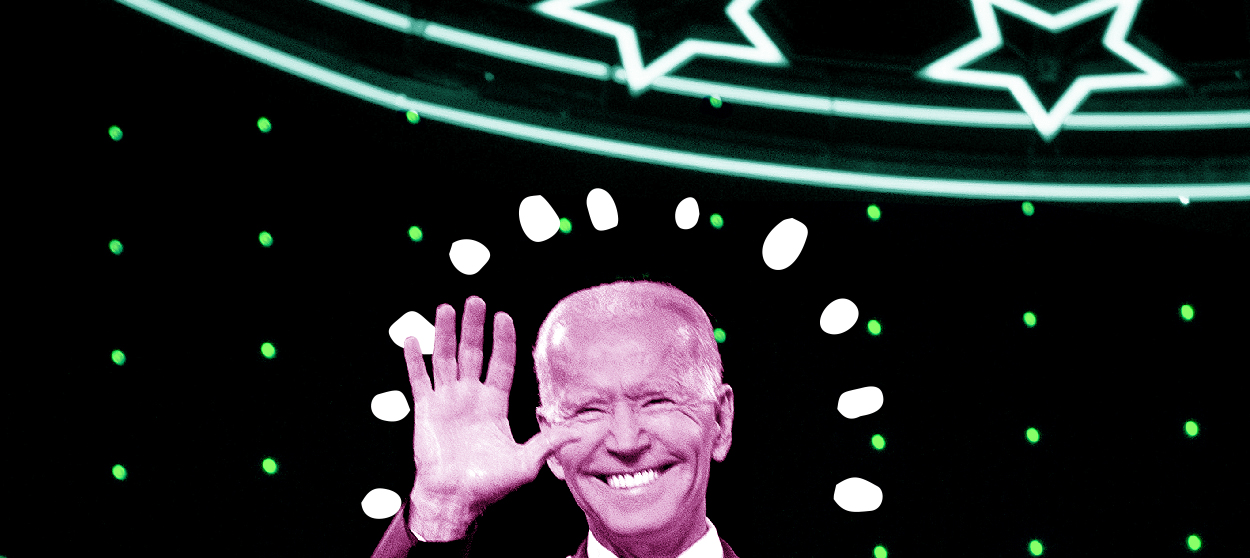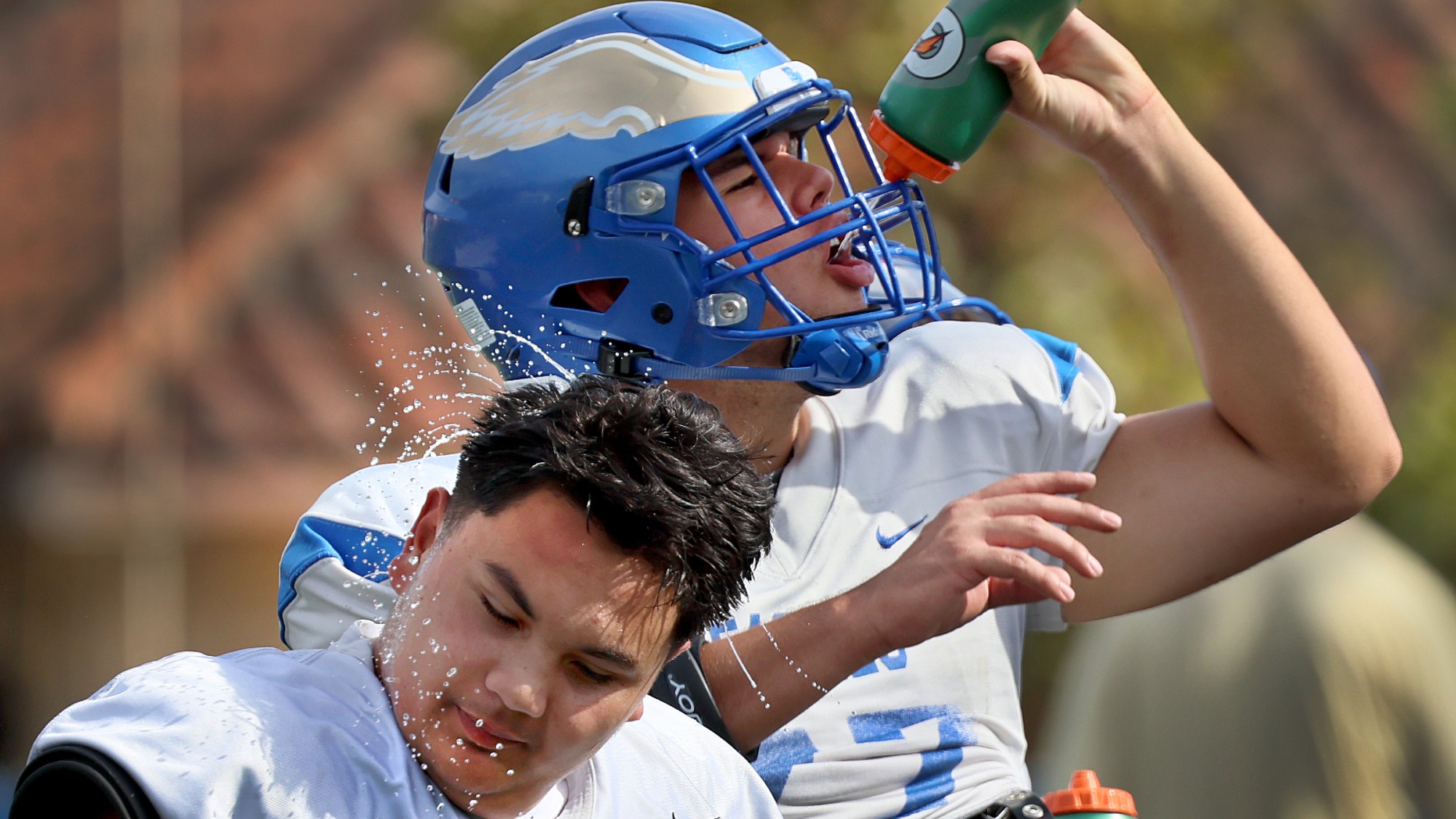How Joe Biden won the second night of the Detroit debate
The polls don't lie


A free daily email with the biggest news stories of the day – and the best features from TheWeek.com
You are now subscribed
Your newsletter sign-up was successful
Sometimes the simplest take is the truest one.
And the simple truth is that Joe Biden won the second night of the Democratic debate in Detroit for one simple reason: He came into the event with a massive lead in the polls and he did nothing on Wednesday night to change that. If Biden can repeat this performance throughout the debates between now and the start of the primaries, he will be in a very strong position to win his party's nomination.
Those who spend their lives analyzing politics don't like this because it's not very interesting. Members of the Democratic Party's progressive wing don't like it because they desperately want to break from the style and substance that marked the Obama administration and that Biden promises every couple of minutes to revive. And I don't especially like it because it smells of lazy complacency that could leave the party vulnerable in an age of angry polarization and populism.
The Week
Escape your echo chamber. Get the facts behind the news, plus analysis from multiple perspectives.

Sign up for The Week's Free Newsletters
From our morning news briefing to a weekly Good News Newsletter, get the best of The Week delivered directly to your inbox.
From our morning news briefing to a weekly Good News Newsletter, get the best of The Week delivered directly to your inbox.
But the polls don't lie.
Biden has been leading from the moment he joined the race. The absurdly large field can distract us from that fact. No fewer than five of the candidates on stage the first night in Detroit attempted to stake out the same moderate ground as Biden, as did Colorado Sen. Michael Bennet on the second night. But those six candidates' combined polling averages are at 3.5 percent. Biden, by contrast, currently stands at 32 percent.
Biden has the moderate lane all to himself. And despite what the activists would like to believe, that remains a very broad lane in the Democratic Party.
It's so broad that Biden's been able to build a lead that dwarfs Donald Trump's four years ago. At this point in 2015, Trump led the Republican field with 21 percent, while second and third places were held by Wisconsin Gov. Scott Walker at 14 percent and former Florida Gov. Jeb Bush at 12. The next five candidates fell between 5 and 7 percent.
A free daily email with the biggest news stories of the day – and the best features from TheWeek.com
Today's Democratic field is far more stratified. Combine support for second-place Bernie Sanders and third-place Elizabeth Warren into a single imagined progressive super-candidate and Biden would still be slightly ahead. And after that? California Sen. Kamala Harris is polling around 10 percent, South Bend Mayor Pete Buttigieg stands at 5 percent, and then we're already under 3 percent, where the remaining candidates (well over a dozen of them) are languishing in irrelevancy.
You wouldn't know any of this from the second night of the Detroit debate, when most of the candidates came after the former vice president, swarming around him like angry wasps eager to inject some venom. Sometimes they succeeded, as when New York Sen. Kirsten Gillibrand brought up a 38-year-old Biden op-ed about the "deterioration of family" that left him defensive and unsure how to respond. Harris and Sen. Cory Booker of New Jersey also landed some light blows on health care and immigration.
But here's the thing: Biden's defenses of himself were only rarely powerful and never great. But they were fine. Indeed, better than fine — as when he angrily dismissed criticism of the Affordable Care Act as "a bunch of malarkey." I've never used that expression. But my octogenarian mother-in-law from rural Ohio uses it all the time — just as her neighbors say things like "Go easy on me, kid," as Biden did to Harris just before the start of the debate.
What? Support a candidate for president because he talks like a 70-something white guy from the middle of the country? That's not how intellectuals and activists think voters should make their choices. But it's how they often do. And it appears to be working for Biden.
Folksiness isn't all Biden has going for him. He also has Barack Obama going for him. Obama remains quite popular. His decency, his civility, his well-meaning earnestness, not to mention the ability of his electoral success to make the country feel a little better about itself, its history, and its sins — that redemptive glow remains out there, in the recent past, a memory of a less sordid time.
Biden makes no bones about the fact that he aims to recapture that feeling. He promises a restoration, a wiping away of the stain of the past two-and-a-half years, along with a return to familiar, incrementalist, center-left policies. Biden aims to get us back on course and keep it that way. After four years of the morally grotesque Trump Show, that apparently sounds like quite a lovely idea to something close to a third of the Democratic electorate.
Now, a third isn't yet a plurality or a majority. If either Sanders or Warren gains significant momentum over the other, a consolidated progressive vote could potentially enable one of them to catch up to or surpass Biden. Likewise, Biden might genuinely screw up in a way that drives his supporters to someone else — most likely Harris or Buttigieg, or perhaps a certain midwestern senator who's so far stayed on the sidelines but remains tempted to jump in. But for now, the nomination is Biden's to lose.
Biden didn't shine on Wednesday night. He merely stayed the course. That may well be enough.
Damon Linker is a senior correspondent at TheWeek.com. He is also a former contributing editor at The New Republic and the author of The Theocons and The Religious Test.
-
 The Olympic timekeepers keeping the Games on track
The Olympic timekeepers keeping the Games on trackUnder the Radar Swiss watchmaking giant Omega has been at the finish line of every Olympic Games for nearly 100 years
-
 Will increasing tensions with Iran boil over into war?
Will increasing tensions with Iran boil over into war?Today’s Big Question President Donald Trump has recently been threatening the country
-
 Corruption: The spy sheikh and the president
Corruption: The spy sheikh and the presidentFeature Trump is at the center of another scandal
-
 The ‘mad king’: has Trump finally lost it?
The ‘mad king’: has Trump finally lost it?Talking Point Rambling speeches, wind turbine obsession, and an ‘unhinged’ letter to Norway’s prime minister have caused concern whether the rest of his term is ‘sustainable’
-
 The billionaires’ wealth tax: a catastrophe for California?
The billionaires’ wealth tax: a catastrophe for California?Talking Point Peter Thiel and Larry Page preparing to change state residency
-
 Bari Weiss’ ‘60 Minutes’ scandal is about more than one report
Bari Weiss’ ‘60 Minutes’ scandal is about more than one reportIN THE SPOTLIGHT By blocking an approved segment on a controversial prison holding US deportees in El Salvador, the editor-in-chief of CBS News has become the main story
-
 Memo signals Trump review of 233k refugees
Memo signals Trump review of 233k refugeesSpeed Read The memo also ordered all green card applications for the refugees to be halted
-
 Has Zohran Mamdani shown the Democrats how to win again?
Has Zohran Mamdani shown the Democrats how to win again?Today’s Big Question New York City mayoral election touted as victory for left-wing populists but moderate centrist wins elsewhere present more complex path for Democratic Party
-
 Millions turn out for anti-Trump ‘No Kings’ rallies
Millions turn out for anti-Trump ‘No Kings’ ralliesSpeed Read An estimated 7 million people participated, 2 million more than at the first ‘No Kings’ protest in June
-
 Democrats: Harris and Biden’s blame game
Democrats: Harris and Biden’s blame gameFeature Kamala Harris’ new memoir reveals frustrations over Biden’s reelection bid and her time as vice president
-
 ‘We must empower young athletes with the knowledge to stay safe’
‘We must empower young athletes with the knowledge to stay safe’Instant Opinion Opinion, comment and editorials of the day
